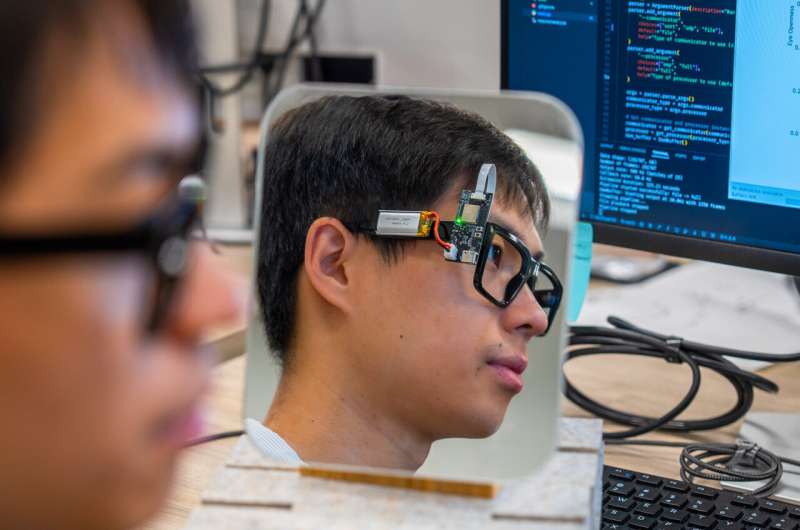The device, called BlinkWise, uses radio signals to track eyelid movements with unprecedented detail, all while preserving privacy and using minimal power. The technology opens doors for assessing fatigue, mental workload and eye-related health issues in real-world settings, from long-haul trucking to everyday office work.
“Because BlinkWise brings together low-power radio-wave sensing and edge AI,” says Mingmin Zhao, assistant professor in computer and information science (CIS) and one of the lead researchers on the project, “it can sense more efficiently and run advanced health monitoring directly on the glasses with less energy, less space and less data than existing ‘smart’ eyewear.”

